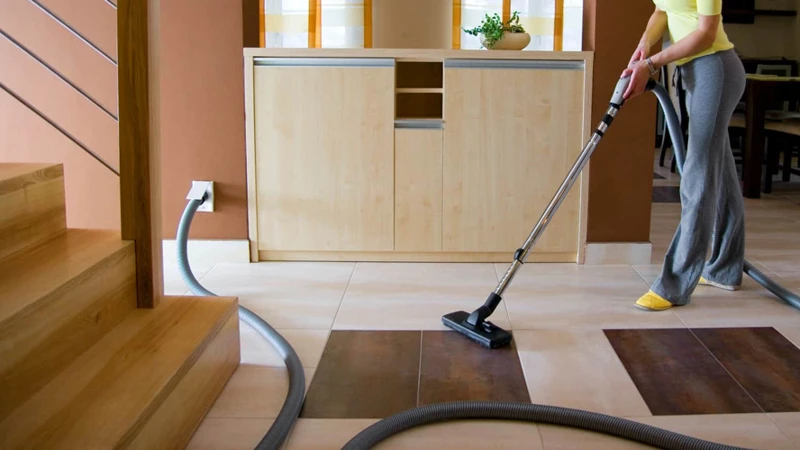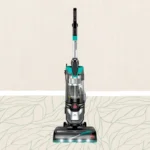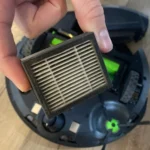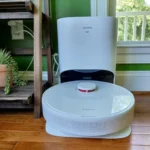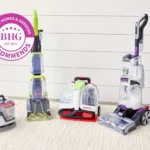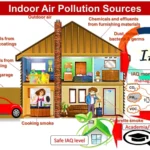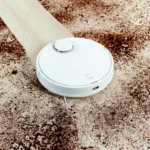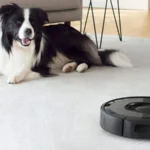The Importance of Vacuuming
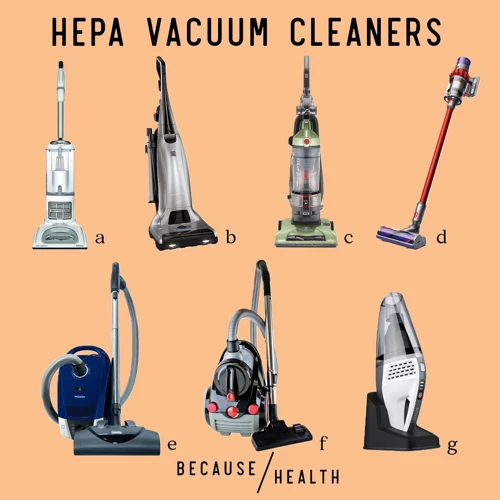
Vacuuming is an essential part of household cleaning that is often overlooked. Many people still rely on traditional vacuum cleaners, which can pose health hazards and do not provide the thorough cleaning that is required. Dust is a major allergen, and traditional vacuum cleaners can leave it behind, adversely affecting air quality and causing respiratory issues.
Regular vacuuming can provide many benefits for your health and the cleanliness of your home. By vacuuming often, you can remove dirt and dust that accumulate on carpets, rugs, and other surfaces. This not only makes your home look clean but also helps to maintain a healthy environment. It is important to note that improperly vacuuming can worsen the indoor air quality in your home, which can cause health issues, especially for individuals with asthma or allergies.
Some traditional vacuum cleaners can cause more harm than good. For instance, higher energy consumption or loud noise can cause stress or even disturb the peace in the household. Additionally, some of them fail to get into tight spaces, leaving some areas of the house unclean. Others are inefficient at cleaning carpets and rugs, which are some of the most common breeding grounds for dust mites and other allergens.
Consequently, switching to a smart vacuum cleaner can significantly improve the quality of air in your home and keep health hazards at bay. It can effectively remove dust particles and other contaminants, such as pollen or pet dander, from your floors and other surfaces. Its advanced features allow it to navigate tight spaces and provide precise cleaning. And since there is no need to handle dust and debris, smart vacuum cleaners are overall more hygienic and cause less physical strain.
Vacuuming offers a lot of benefits for both the environment and our health. With smart vacuum cleaners, the process becomes more effective, less stressful, and more accessible for everyone. Smart vacuum cleaners are an excellent investment to make, delivering long-term benefits for your home and saving time on cleaning activities.
Health Hazards of Traditional Vacuum Cleaners
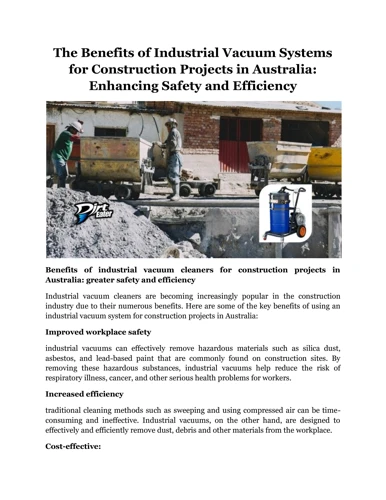
It might come as a surprise to many, but traditional vacuum cleaners may not be as beneficial to our health as one might think. In fact, they can pose several health hazards that can impact our well-being in many ways. From air pollution to the spread of allergens, traditional vacuum cleaners can cause more harm than good. Let’s take a closer look at some of the health hazards associated with conventional vacuum cleaners.
Air Pollution
Breathing fresh air is one of the most essential things for good health. However, indoor air can be more hazardous than the outdoor air we breathe. Traditional vacuum cleaners contribute to this problem by dispersing fine dust particles and other pollutants into the air. The air pollution caused by these machines can lead to a range of health issues, including respiratory problems, coughing, and itchy eyes.
To understand the significance of air pollution due to traditional vacuum cleaners, we need to know how these appliances work. Most traditional vacuum cleaners use a bag or filter to trap dust and other particles sucked in from your floors, carpets, and other surfaces. Unfortunately, this process doesn’t catch every particle, and some of them escape back into the air via the vacuum cleaner’s exhaust system.
Additionally, older vacuum cleaners can release harmful chemicals such as lead, mercury, or other toxic gasses during usage. These pollutants can cause serious health issues and can be detrimental to the environment.
To help you sort out the effects of the traditional vacuum cleaner on your health, below is a table that shows the consequences.
| Problem | Effect on Health |
| Increases tiny dust and particle concentration in air | Can cause respiratory problems, coughing, itchy eyes |
| Release of toxic chemicals | Can be detrimental to the environment and your health |
Switching to a smarter vacuum cleaner that uses high-efficiency particulate air (HEPA) filters can significantly reduce the harmful effects of traditional vacuum cleaners on your indoor air quality. HEPA filters capture 99.97% of particles down to 0.3 microns, significantly improving air quality and reducing health risks.
Spreading Dust Mites and Allergens
One of the major disadvantages of traditional vacuum cleaners is that they can do more harm than good when it comes to spreading dust mites and allergens around your home. Dust mites and allergens thrive in carpets, upholstery, and bedding, and when you use a traditional vacuum cleaner to clean these surfaces, they can easily become airborne and spread throughout your living space. This can result in increased exposure to these allergens and dust mites, which can trigger respiratory problems such as asthma and allergies.
Additionally, the filters in traditional vacuum cleaners may not be effective in trapping small particles such as dust mites and allergens. They may not provide adequate protection against these harmful particles, which can eventually cause health issues.
Another issue with traditional vacuum cleaners is that they can actually stir up dust and debris during the cleaning process, making the air quality in your home worse. As dust and allergens are circulated in the air, they can settle into your lungs and trigger respiratory problems. This can be especially problematic for individuals who already suffer from respiratory issues or have weakened immune systems.
However, with a smart vacuum cleaner, these hazards can be avoided altogether. These innovative cleaning devices are designed to contain dust and allergens within a closed system, minimizing their spread throughout your home. Smart vacuum cleaners incorporate advanced technology such as HEPA filters and powerful suction, which ensures that all dust, dirt, and allergens are effectively removed from your indoor environment.
Switching to a smart vacuum cleaner is a wise choice, especially if you or a loved one suffers from allergies or respiratory issues. By reducing the spread of dust and allergens, you can protect your health and breathe easier in your own home.
Indoor Air Quality
The quality of indoor air has been an area of increasing concern for many people. One common culprit for poor indoor air quality is the traditional vacuum cleaner. So why exactly do traditional vacuum cleaners negatively impact indoor air quality?
Here are the reasons:
- Distribution of fine dust particles: Traditional vacuum cleaners tend to distribute fine dust particles in the air when they are being used. These particles can stay suspended in the air for hours, significantly reducing indoor air quality in your home.
- Inefficient filtration systems: Traditional vacuum cleaners often come with inefficient filtration systems, which allow particles like pet dander, mold spores, and dust mites to escape from the vacuum cleaner back into the air, causing respiratory problems and allergies.
- Blowing out dust: Traditional vacuum cleaners have a tendency to blow out dust and debris as they are being used. This is especially problematic for people with allergies or respiratory issues, as this can cause irritation and discomfort.
- Chemicals and fumes: Many traditional vacuum cleaners come with chemicals and fumes that can be harmful to indoor air quality. For instance, some vacuum cleaners emit formaldehyde, benzene, and other harmful chemicals.
All of these factors can contribute to poor indoor air quality, which can cause a range of health problems from allergies to respiratory issues. Switching to a smart vacuum cleaner can improve indoor air quality and contribute to a healthier living environment for you and your family.
Inadequate Cleaning
When using traditional vacuum cleaners, inadequate cleaning is one of the major health hazards that people often overlook. This is attributed to the fact that traditional vacuum cleaners do not have efficient suction power and filters, therefore, they are not capable of removing small particles from surfaces. Here are some of the reasons why inadequate cleaning can cause health hazards:
| Dirt and Debris Accumulation | When a vacuum cleaner lacks suction power, it is unable to remove dirt, debris, and other small particles from surfaces. This accumulation of dust and dirt can make it difficult for people to breathe, especially for those with respiratory problems such as asthma and bronchitis. |
| Bacterial Growth | When dirt and debris accumulate on surfaces, there is a high chance of it harboring bacteria and other germs. This can lead to the spread of diseases and illnesses among family members and pets. |
| Increased Allergy Symptoms | Traditional vacuum cleaners are not effective in removing airborne allergens such as pollen, dust mites, and pet dander. When these allergens accumulate on surfaces, they can trigger severe allergic reactions, causing sneezing, runny nose, itchy eyes, and even asthma attacks. |
| Decline in Indoor Air Quality | When dirt and debris accumulate on surfaces, they can easily become airborne, reducing the quality of indoor air. This can lead to respiratory problems and worsening of allergies. |
It’s essential to switch to smart vacuum cleaners that have powerful suction and high-efficiency filters to ensure thorough cleaning of surfaces. By doing so, you can significantly reduce the health hazards associated with inadequate cleaning and improve the quality of air in your home.
Physical Health Issues
The use of traditional vacuum cleaners can have serious physical health issues for users. Here are some of the most common problems caused by these types of vacuums:
- Back Pain: Traditional vacuum cleaners are often heavy and require the user to push and pull them repeatedly. This can cause back pain and strain, especially if the user needs to vacuum for an extended period of time.
- Asthma and Allergies: Traditional vacuums can stir up dust and other allergens, aggravating asthma and allergies in some people. This can make it difficult for people with these conditions to use a vacuum without causing respiratory problems.
- Repetitive Strain Injuries: The repetitive motion of using a traditional vacuum cleaner can cause tendonitis, carpal tunnel syndrome, and other repetitive strain injuries, especially in the hands and wrists.
These physical health issues can cause significant discomfort, and in some cases, even lead to chronic problems. Luckily, smart vacuum cleaners offer a solution to these problems. By automating the vacuuming process, they take the strain off your body, requiring minimal physical effort. This can reduce the risk of back pain and other repetitive strain injuries.
Smart vacuum cleaners can filter and clean the air while they work, removing dust, pollen, and other allergens from the air. This significantly reduces the risk of respiratory problems caused by vacuuming with a traditional vacuum cleaner. Switching to a smart vacuum cleaner can be a great way to eliminate physical health issues that may come with traditional vacuuming methods.
How Smart Vacuum Cleaners Benefit Your Health
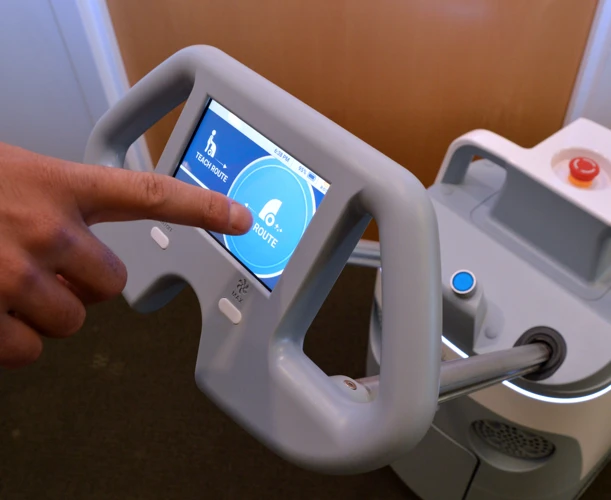
While we already know that vacuuming is important for maintaining a clean and healthy home, not all vacuum cleaners are created equal when it comes to promoting good health. Traditional vacuum cleaners can actually contribute to a number of health hazards that most people are completely unaware of. This is where smart vacuums come in. By utilizing the latest technology, smart vacuum cleaners offer several benefits that significantly improve your health and overall well-being. Let’s explore these benefits in greater detail.
Better Indoor Air Quality
One major health benefit of using smart vacuum cleaners is the improved indoor air quality that they offer. Unlike traditional vacuum cleaners that tend to circulate and stir up dust and allergens, smart vacuums are designed to capture and contain these contaminants.
Smart vacuums come equipped with highly efficient filters that capture and trap a wide range of tiny particles, including allergens, pet dander, and dust mites. These filters can trap particles as small as 0.3 microns – much smaller than what traditional vacuum cleaners can capture.
By filtering out these particles, smart vacuums help to improve the overall air quality of your home. This is especially important for those with respiratory issues like asthma or allergies, as poor indoor air quality can exacerbate these conditions.
Additionally, many smart vacuums also feature sensors that detect air quality and adjust their cleaning patterns accordingly. This means that they will automatically increase suction power and cleaning frequency in areas where air quality is poor, ensuring that your home remains healthy and clean.
The improved indoor air quality provided by smart vacuum cleaners is a crucial consideration for anyone looking to improve their health and wellbeing at home. By investing in a smart vacuum that can capture and contain allergens and other contaminants, you can create a much healthier and more pleasant living environment for yourself and your family.
Dust and Pollen Allergen Removal
One of the major benefits of using a smart vacuum cleaner is its ability to remove dust and pollen allergens from your home. Here are some of the ways in which it does so:
- Cyclone Technology: Many smart vacuums use advanced cyclonic technology that creates a powerful force to suck up even the finest dust particles and pollen allergens from your floors.
- High-Efficiency Particulate Air (HEPA) filters: These filters can trap up to 99.97% of all particles larger than 0.3 microns. This includes dust, pollen, and other allergens that can trigger allergies and asthma. Smart vacuums with a HEPA filter ensure that these particles are not released back into the air, resulting in cleaner and healthier indoor air quality.
- UV-C Light: Some smart vacuum cleaners use UV-C light technology to kill harmful allergens and bacteria, and prevent them from spreading. The light helps sterilize the surfaces that the vacuum is cleaning, so you can be sure that your home is truly clean and healthy.
- Sensor technology: Many smart vacuum cleaners utilize sensors that detect and focus on areas with higher dust and allergen concentration. This ensures that these areas are given extra attention, resulting in a deeper clean and better removal of allergens.
The dust and pollen allergen removal function of smart vacuum cleaners not only benefits those with allergies or asthma, but also everyone in the household. Eliminating these allergens improves the overall indoor air quality of your home, reducing the risk of respiratory illnesses and enhancing your overall health and wellbeing.
No Need to Handle Dust and Debris
Smart vacuum cleaners have revolutionized the cleaning industry by introducing advanced technologies that eliminate the need for physical labor. One of the significant advantages of smart vacuum cleaners is that they don’t require you to handle the dust and debris manually.
No Risk of Inhaling Dust
Traditional vacuum cleaners require you to remove the dustbin and dispose of the dust and debris manually, which can pose a significant health hazard. Dust and debris contain allergens, bacteria, and viruses that are harmful to your health. Additionally, inhaling dust while disposing of it can cause respiratory problems, especially for people suffering from allergies or asthma. With a smart vacuum cleaner, you don’t have to worry about inhaling dust or other particulate matter while cleaning your floors.
Hygienic Cleaning
Smart vacuum cleaners come equipped with a dustbin that collects all the dust and debris while cleaning. The dustbin is easy to remove and dispose of, ensuring a hygienic cleaning process. Additionally, many smart vacuum cleaners come with a self-emptying dustbin feature that allows the vacuum cleaner to empty the dustbin into a larger bin or bag, reducing your interaction with the dust entirely.
Less Mess
Traditional vacuum cleaners can create a lot of mess while cleaning, which usually requires additional cleaning using a broom or a mop. Smart vacuum cleaners eliminate the need for such additional cleaning and leave your floors spotless. The dust and debris collected by the smart vacuum cleaner are sealed in the dustbin, preventing any chance of particles escaping while you clean.
Smart vacuum cleaners eliminate the need for manual labor during cleaning and provide a more hygienic and efficient cleaning process. With a smart vacuum cleaner, you no longer have to worry about inhaling dust or spreading allergens while disposing of dust and debris. Choose a smart vacuum cleaner today and enjoy a cleaner and healthier home.
| Advantages | Disadvantages |
|---|---|
| Eliminates need for physical labor | May be more expensive than traditional vacuum cleaners |
| Reduces risk of inhaling dust and debris | May have a smaller dustbin capacity |
| Provides hygienic cleaning | May require a power source or charging |
| Less mess and additional cleaning | May have a shorter battery life |
Reduced Physical Strain
One of the biggest advantages of smart vacuum cleaners is reduced physical strain, which is especially important for people who suffer from mobility or joint issues. Traditional vacuum cleaners require dragging a heavy and bulky machine around the house, which can be exhausting and painful for some individuals. Pushing and pulling the vacuum repeatedly can lead to muscle strain and soreness. On the other hand, smart vacuums are designed to be compact and lightweight, making them easier to move around and carry from room to room.
To further alleviate physical strain, smart vacuums are equipped with advanced features such as self-navigation and voice control. With self-navigation, the device can move around the house on its own, avoiding obstacles and adjusting to different surfaces. This means that you don’t have to constantly bend down to adjust the vacuum’s height or direction, which can put a strain on your back and neck. Voice control, on the other hand, allows you to command the vacuum to start or stop cleaning without having to reach for the device or bend down to press buttons.
To compare the physical strain caused by traditional and smart vacuum cleaners, take a look at the following table:
| Traditional Vacuum Cleaners | Smart Vacuum Cleaners | |
|---|---|---|
| Weight | Heavy and bulky | Compact and lightweight |
| Mobility | Require dragging and carrying around | Equipped with self-navigation |
| Interaction | Require constant bending down to adjust height and direction | Can be controlled by voice commands |
As you can see, smart vacuum cleaners offer several benefits that reduce physical strain and make cleaning easier and more comfortable. If you suffer from mobility issues, joint pain, or muscle soreness, switching to a smart vacuum cleaner can significantly improve your quality of life.
Additional Advantages of Smart Vacuum Cleaners
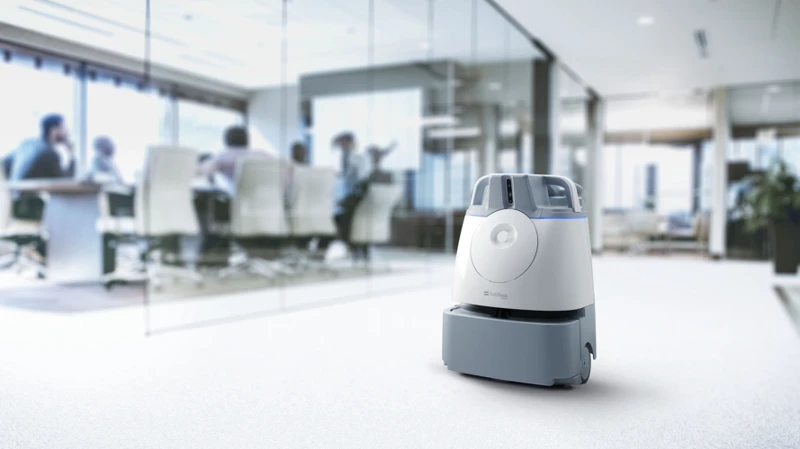
As if the improvements to your indoor air quality and physical health weren’t enough, smart vacuum cleaners come with a host of additional advantages. When compared to traditional vacuum cleaners, these innovative machines are truly ahead of the game. Here are some of the extras you can reap by switching to a smart vacuum cleaner.
Improved Technology and Efficiency
Smart vacuum cleaners use advanced technology to enhance their performance and efficiency compared to traditional vacuum cleaners. These vacuum cleaners are equipped with various sensors, intelligent algorithms, and AI technology to improve their effectiveness and automate tasks, making cleaning a breeze.
One of the significant advantages of smart vacuum cleaners is their enhanced suction power. They can pick up dirt and debris more effectively than traditional vacuum cleaners, even from hard-to-reach areas. Another technological advancement is the mapping feature which creates a virtual map of your home and helps the vacuum cleaner navigate around obstacles without getting stuck. This technology also helps to ensure complete cleaning in a particular area without missing any spot.
Smart vacuum cleaners also come with innovative features such as voice control, mobile app control, and scheduling options that offer a seamless cleaning experience. You can easily control the vacuum cleaner from your smartphone, which allows you to schedule cleaning while you’re away. This technology helps you to save time, and energy, allowing you to focus on other essential tasks.
Smart vacuum cleaners have a high-capacity dustbin that can collect dirt and debris without you needing to clean it frequently. They also have efficient filters that capture bacteria, dust, and allergens and automatically change them when needed, ensuring your home stays clean and healthy. Most of the smart vacuum cleaner brands have HEPA filters that trap small particles, making them more suitable for people who have allergies and asthma.
Smart vacuum cleaners are more efficient and offer better cleaning power, easy control, and low maintenance, making cleaning a stress-free experience. By investing in a smart vacuum cleaner, you can save time, energy, and money in the long run while enjoying a cleaner home environment.
User-Friendly and Convenient
Smart vacuum cleaners are not only good for your health, but they’re also very user-friendly and convenient. These high-tech devices are designed with the user in mind, and as such, they’re extremely easy to operate, even for first-time users. Here are some of the ways in which smart vacuum cleaners are user-friendly and convenient:
| Simplified Controls | Mobile App Support | Voice Control |
|---|---|---|
| Smart vacuum cleaners feature simple and easy to understand controls. Unlike traditional vacuum cleaners with numerous buttons and functions that can be overwhelming, smart vacuums come with intuitive controls that are easy to navigate. | Most smart vacuums have mobile app support which allows you to control the device remotely. You can start, stop, and even schedule cleaning sessions from your smartphone, even when you’re not at home. | Voice control is another impressive feature of smart vacuums. With virtual assistant integration, you can control the device using voice commands. This is especially helpful for people with disabilities, or those who prefer hands-free operation. |
| Automatic Charging | Easy Maintenance | Custom Scheduling |
| Smart vacuum cleaners are designed to automatically return to their docking station for recharging. This means that you don’t have to worry about monitoring the battery level, or manually recharging the device. | Maintaining a smart vacuum cleaner is easy and hassle-free. The device comes with self-cleaning brushrolls, and filter replacements are infrequent. All you need to do is empty the dustbin regularly and clean the device from time to time. | You can easily schedule the device to clean your home at specific times of the day, or on specific days of the week. Just set it and forget it. This feature ensures that your home is always clean and free of dirt and debris. |
With all these user-friendly and convenient features, it’s easy to see why smart vacuum cleaners are becoming increasingly popular. They are designed to make your life easier, while still ensuring that your home is clean and free of health hazards. With smart vacuum cleaners, cleaning has never been easier!
Low Maintenance
Smart vacuum cleaners are a great addition to any home, and one of the advantages that you won’t want to overlook is that they require low maintenance. Unlike traditional vacuum cleaners that require regular bag changes, hose unclogging, and filter replacements, smart vacuum cleaners are designed to be much easier to maintain.
One way in which smart vacuums are low maintenance is that they don’t use bags to collect debris. Instead, they use a dustbin that can be easily removed and emptied into the trash. Most of these bins have a capacity of around 0.5 liters, which is large enough to hold a week’s worth of dirt and debris.
Smart vacuums use advanced filtration systems that require less frequent cleaning or replacement. HEPA filters are common in smart vacuums and capture 99.97% of tiny particles, including dust, mold, and pet dander. These filters only need to be replaced every six months or so, meaning less maintenance for you.
Smart vacuums have self-cleaning brushes and sensors, which means that you won’t need to manually remove tangled hair or pet fur. The brushes are equipped with sensors that detect when they are tangled and automatically stop to reverse the direction and untangle themselves. This feature ensures that your vacuum cleaner can continue to perform at optimal levels, with minimal maintenance required from the user.
Here’s a table that summarizes the low maintenance benefits of smart vacuum cleaners:
| Traditional Vacuums | Smart Vacuums |
|---|---|
| Require frequent bag changes | Use a dustbin that can be easily emptied |
| Filters require frequent cleaning | Advanced filters that require less cleaning or replacement |
| Brushes become tangled and require manual cleaning | Self-cleaning brushes and sensors |
Conclusively, smart vacuum cleaners offer a variety of benefits that make them an appealing alternative to traditional vacuum cleaners. With minimal maintenance requirements, advanced filtration systems, and self-cleaning brushes and sensors, they are not only healthier for you but also more user-friendly and convenient. If you want to improve your indoor air quality and reduce your physical strain while maintaining a clean home, a smart vacuum cleaner may be the perfect choice for you.
How to Choose the Best Smart Vacuum Cleaner for Your Home
Choosing the right smart vacuum cleaner is crucial for ensuring that you get the best results possible. Here are some factors you should take into consideration when making your choice.
Type of Flooring: The type of flooring in your home plays a vital role in determining the best smart vacuum cleaner for you. If you have mainly hardwood floors, you may want to opt for a model that has a hard floor mode. On the other hand, if your home has carpets or rugs, you’ll want to look for a smart vacuum cleaner that’s specifically designed for cleaning them.
Filtration System: The filtration system of a smart vacuum cleaner is responsible for trapping allergens and dust particles while expelling clean air. If you or any of your family members have allergies or asthma, choose a smart vacuum cleaner with HEPA filters that can remove particles as small as 0.3 microns. A good filtration system can also improve the overall air quality in your home.
Battery Life: If you have a large home, you’ll want a smart vacuum cleaner with a long battery life. This will ensure that you don’t have to stop cleaning mid-way to recharge the battery. Look for a model with a battery life of at least 60 minutes to cover larger areas effectively.
Noise Level: Noise level is another important factor to consider, especially if you have small children or pets at home. You don’t want to disturb them with a loud smart vacuum cleaner. Choose a model that has a quiet operation, preferably below 65 decibels.
Smart Features: Smart vacuum cleaners come with a range of additional features such as voice control, mobile app compatibility, and mapping technology. Consider which features are important to you and look for models that offer them.
Warranty and Customer Support: Finally, it’s always a good idea to check the warranty and customer support provided by the manufacturer. A good warranty will ensure that you’re protected against any defects or faults in the machine. Also, make sure that the manufacturer offers responsive customer support in case you run into any issues during use.
By keeping these factors in mind, you’ll be able to choose the best smart vacuum cleaner for your home that meets your cleaning needs, budget, and personal preferences.
Conclusion
In conclusion, switching to a smart vacuum cleaner is not only a wise choice for the sake of convenience and efficiency, but also for your health. By eliminating the health hazards associated with traditional vacuum cleaners, smart vacuums can contribute to improved indoor air quality and help protect against respiratory problems, allergies, and other physical health issues.
So, don’t hesitate to make the switch today and start enjoying the benefits of a clean home without compromising your health. Keep in mind that the market offers a variety of smart vacuum models, each with unique features and capabilities, so make sure to do your research and choose the one that best fits your needs and lifestyle.
Your health and well-being should always be a top priority, and by switching to a smart vacuum cleaner, you are taking an important step towards a healthier and happier life. So, say goodbye to the potential health hazards associated with traditional vacuums and hello to a cleaner, healthier home with a smart vacuum cleaner.
Frequently Asked Questions
What is the importance of regular vacuuming?
Regular vacuuming helps to remove dust, dirt, and allergens from your home, providing a clean living environment and improving indoor air quality.
What are the health hazards of using traditional vacuum cleaners?
Traditional vacuum cleaners can cause air pollution, spread dust mites and allergens, worsen indoor air quality, inadequately clean surfaces, and lead to physical health issues.
How do traditional vacuum cleaners cause air pollution?
Traditional vacuum cleaners can release dust and pollutants back into the air through their exhaust system, contributing to indoor and outdoor air pollution.
Can traditional vacuum cleaners worsen indoor air quality?
Yes, traditional vacuum cleaners can kick up dust particles and allergens, which can then circulate and settle throughout your home, worsening indoor air quality.
What physical health issues can result from using traditional vacuum cleaners?
Physical health issues such as back pain, shoulder strain, and wrist injuries can result from the repetitive motions and strain required to use traditional vacuum cleaners.
How can smart vacuum cleaners benefit your health?
Smart vacuum cleaners can improve indoor air quality, remove dust and pollen allergens, eliminate the need to handle dust and debris, and reduce physical strain.
What is the advantage of improved technology and efficiency in smart vacuum cleaners?
Improved technology and efficiency in smart vacuum cleaners can lead to deeper cleaning, easier maintenance, and less energy consumption.
How are smart vacuum cleaners user-friendly and convenient?
Smart vacuum cleaners can be controlled and scheduled through smartphone apps, making it easier to maintain a clean home and monitor cleaning progress.
What is the benefit of reduced physical strain from using smart vacuum cleaners?
Reduced physical strain from using smart vacuum cleaners can help to prevent injuries and make cleaning an easier and more enjoyable experience.
How can I choose the best smart vacuum cleaner for my home?
You can choose the best smart vacuum cleaner for your home by considering factors such as your budget, cleaning needs, and desired features such as autonomous cleaning and voice control.
